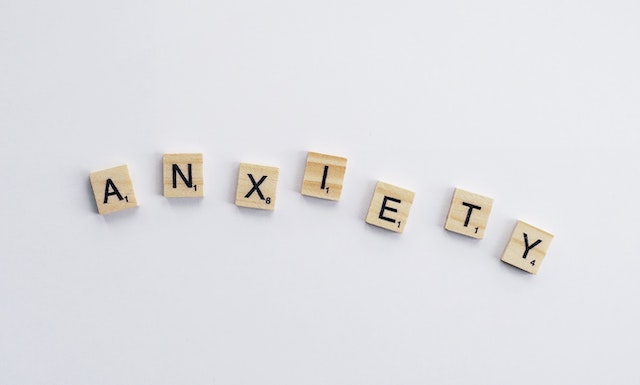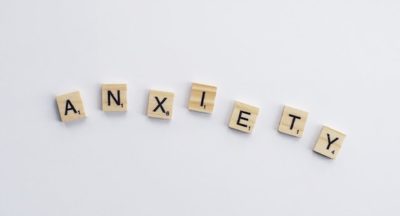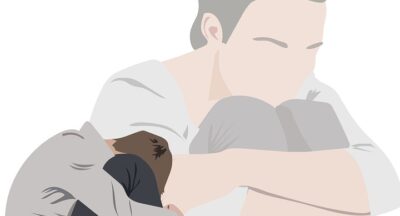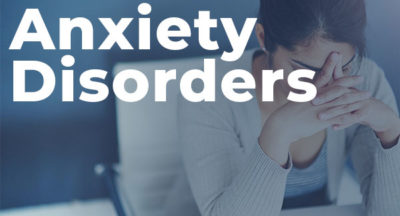
You Should Know These Anxiety Disorder Facts !
Anxiety disorders are common when people confront what is happening or hear news. This causes anxiety or stress. In any case, assuming should be done with caution. It appears for no apparent reason or is difficult to control. It is because it could be caused by a nervousness problem.

Uneasiness and tension problems are not the same thing. If tension exists, it is considered normal. That it is still taken care of and disappears once the triggering factors for the development of uneasiness are resolved. In any case, assuming that the nervousness persists or worsens until it obstructs day-to-day activities.
Understand the Symptoms of Anxiety Disorders
Everybody gets nervous when they are about to face or are in a situation that they perceive to be undermining or unsettling. Changing schools, starting a new job, undergoing a medical procedure, facing a test, experiencing a mishap, or hoping that a spouse will conceive a child are some examples of these circumstances. This can have an impact on anxiety disorders.
It is common for people to become nervous when they have to deal with upsetting circumstances or conditions.
Individuals who are agitated are likely to experience the following side effects:
- Apprehensive, anxious, and tense
- Quick pulse
- Fast breath
- Shaking
- Difficulty or even inability to sleep
- Excessive sweating
- Body feels feeble
- Difficulty focusing
Differentiating Between Normal and Dangerous Anxiety
Uncertainty isn’t always a bad thing with positive thoughts, the anxiety that emerges can be used as motivation or support to overcome specific difficulties or circumstances anxiety disorders.
For example, during a test or a prospective employee meeting, stress may persuade you to read up on or plan for a new employee screening more than you might expect. What to look out for is when tension persists even after the trigger factor has been removed, or when nervousness appears for unknown reasons and interferes with exercise. You should consider an uneasiness problem in this situation.
The symptoms of anxiety disorders differ from person to person, depending on the type of anxiety disorder experienced. To determine whether the apparent nervousness is normal or the result of mental problems, a clinician or psychiatrist assessment is essential.

Some Anxiety Disorders You Should Be Aware Of
Following that are the various types of uneasiness or nervousness issues and their side effects:
Nervousness jumble summarized
An individual suffering from accumulated anxiety disorders may feel stressed or excessively restless over a variety of issues. Going from work, wellbeing, to simple and regular things that happen on a regular basis, such as interacting with others, can be difficult at times. The uneasiness that results from accumulated nervousness turmoil can be felt consistently and lasts for more than a half year. As a result, people who suffer from this tension will find it difficult to complete daily exercises and work.
Fear
Fear is a type of anxiety disorder that causes victims to be extremely nervous. In general, it will be amusing about specific items, creatures, or circumstances. When people who have a fear see something, they may experience anxiety or severe trepidation. Or are in an environment that causes fear, such as bugs, blood, being in a group, a dim spot, a high spot, or an enclosed space. Individuals who are afraid will generally bend over backwards to avoid the thing. They are also afraid of the situation.
The problem of social anxiety
Individuals with social nervousness, which is one of the anxiety disorders or social fear, experience excessive anxiety or apprehension when collaborating with others. Individuals who suffer from this fear frequently feel watched and judged by others, and they are apprehensive or unnecessarily humiliated when in a group. These factors cause the victim to generally avoid situations that require him to meet or cooperate with a large number of people.
When i must go : Anxiety Disorder Therapy
PTSD (post-awful pressure problem)
Post-traumatic stress disorder, also known as PTSD, can occur in people who have been in a dangerous or dangerous situation.
For example, people living in conflict or war zones, those affected by catastrophic events, or survivors of brutality. Individuals suffering from PTSD frequently find it difficult to forget the traumatic experience, whether it occurred during a dream or during a flashback, which causes them to feel remorseful, isolated, and difficult to associate with others. Individuals suffering from PTSD may also experience a sleeping disorder and even depression.
Alarm confusion
Individuals with alarm jumble may experience anxiety or alarm for unknown reasons. This problem can cause uneasiness and anxiety attacks at any time, and they can occur abruptly or repeatedly. Individuals experiencing alarm Side Effects Anxiety Disorders may experience a variety of symptoms, including heart palpitations, cold sweats, wooziness, windedness, body shaking, and a sense of powerlessness.
Individuals suffering from alarm jumble are unable to anticipate when the unsettling influence will occur or what causes it. As a result, not a few people with alarm jumble reduce most, if not all, social interaction because of a paranoid fear of having fits of anxiety repeat openly puts.
Never try diagnosing yourself with any anxiety disorders. Only an experienced health professional can provide this diagnosis after a fair assessment of your situation. These articles are just for informational purposes but shouldn’t diagnose or help you treat anxiety. Seek the help of a professional.
Related Posts
You Should Know These Anxiety Disorder Facts !
Anxiety disorders are common when people confront what is happening or hear news....
The many ugly faces of depression: What should you expect when experiencing Anhedonia and the many symptoms, causes and treatment that are available when dealing with it.
Anhedonia is closely associated with depression and is often considered a...
Complexities of S.A.D (Seasonal Affective Disorders): Coping with mood disorders related to winters and cold temperatures. Effective Strategies that can work during these long winter months to alleviate these moods.
Seasonal Affective Disorder (SAD) is a type of mood disorder that recurs...
Facts About Anxiety Disorders That You Need To Know
Anxienty disorders is something typical to feel when somebody faces what is...




